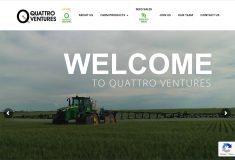Many farms go above and beyond for their teams, offering field meals, covering training costs or topping up wages when they can.
It all comes from a good place, but when generosity isn’t backed by structure, it can quickly become a liability.
As a human resources consultant working with farms, I help build compensation systems that ensure pay is competitive across the industry and equitable within the structure of your team.
Read Also

Alberta cracks down on trucking industry
Alberta transportation industry receives numerous sanctions and suspensions after crackdown investigation resulting from numerous bridge strikes and concerned calls and letters from concerned citizens
These systems don’t just answer the question, “what should I pay this person?” — they also provide a road map for what to do when someone asks for a raise or when roles shift over time.
Almost every farm I work with offers informal perks: fuel allowances, interest-free loans, extra gear, even housing. Sometimes these are written down, but more often, they live in the employer’s head. And that’s where risk starts to creep in.
At times, I feel like I’m crashing the party — showing up with paperwork and policies in a place where trust and handshakes have ruled for years.
However, in my experience, that casual culture isn’t built to withstand a storm, especially when a relationship with a long-term employee breaks down.
Here’s the hard truth: no farm is too small for HR. Informality might feel natural on a small team, but it doesn’t protect you from employment laws or legal obligations. A structured compensation system does.
Whether your employees are family or not, it’s essential to have clear compensation policies. At a minimum, your system should include:
- base wage or salary
- cash perks (bonuses, fuel, loans)
- in-kind perks (meals, personal protective equipment, housing)
- development perks (training, trade show attendance)
Once you know what you’re offering and how often, create policies that define who gets access to each perk, under what conditions, and when taxes apply.
Consistency and clarity are key here, especially if some perks only apply to certain types of employees, such as full-time versus seasonal).
The next step, which is often skipped, is budgeting. Perks have real costs, and it’s important that both you and your team understand how they contribute to overall compensation.
As the employer, you need to be sure your operating budget can support what you’re offering.
Even small teams can find themselves in trouble during tough times when perks or loans are given without limits. That’s why I always recommend setting a cap on discretionary perks and loan amounts.
It’s not just smart financial management — it also gives you a clear, fair reason when you need to say no to a request.
I’ve heard countless stories from farmers whose employees owe them thousands — debts built up over time through housing, fuel or cash advances. Repayment would take years, if it happens at all.
In the end, many farmers simply forgive the amount, quietly absorbing the loss to preserve the relationship or because collecting would mean garnishing wages their workers rely on to get by.
Once your system and budget are in place, the final — and crucial — step is communication.
Most employees focus only on their hourly rate. It’s up to you to show them the full picture of what you’re investing in them.
For perks that vary depending on the employee, include them directly in individual contracts — not just in the employee manual or job description.
A simple way to do this is to create an annual total compensation summary for each employee.
Review it during their performance evaluation and update it regularly. Any changes should be explained in a short letter, signed by the employee, and kept in their file.
Being generous isn’t the problem — being informal is.
Without structure, generosity can expose you to risk, confusion and conflict. But when you define, document and budget your compensation system, everyone wins. Employees know where they stand, employers can plan ahead with confidence and your farm culture, built on trust and care, becomes stronger — not more fragile — with structure behind it.















